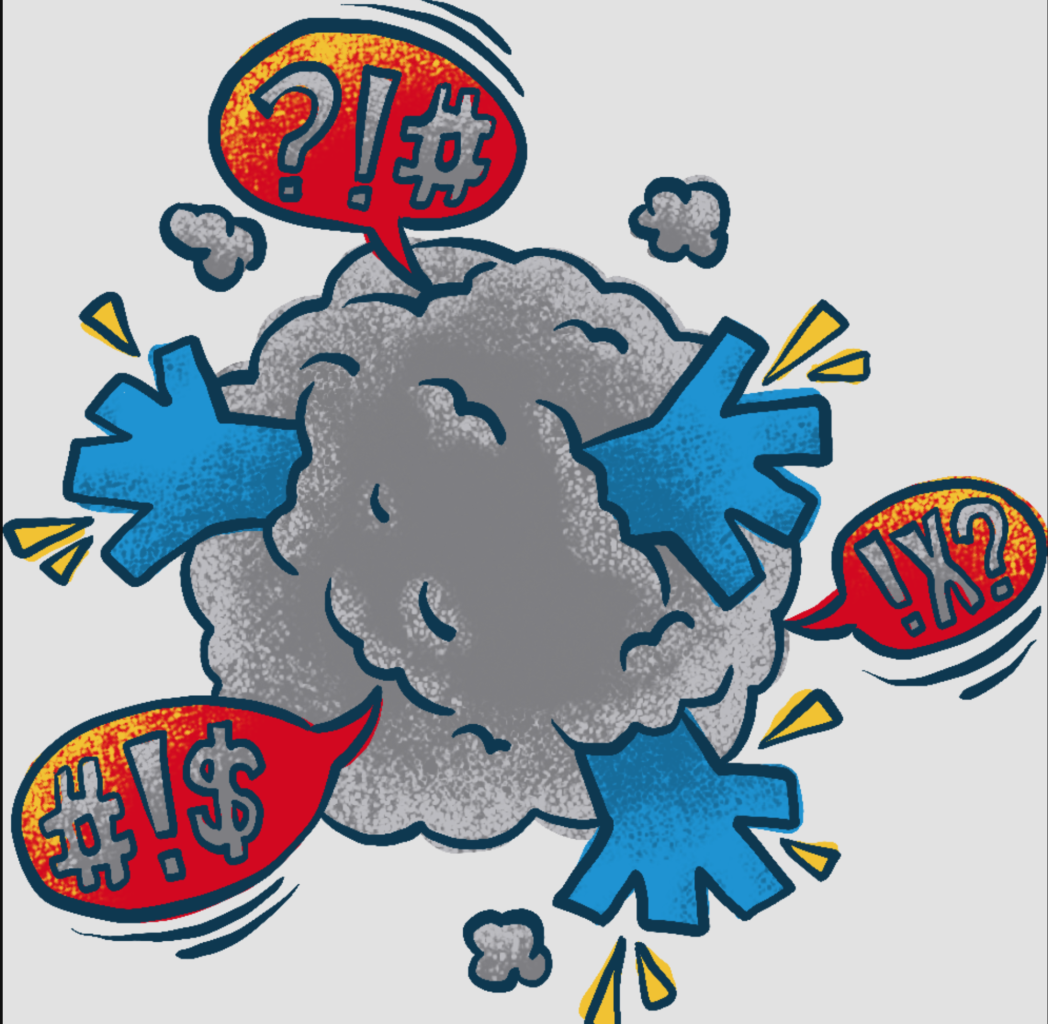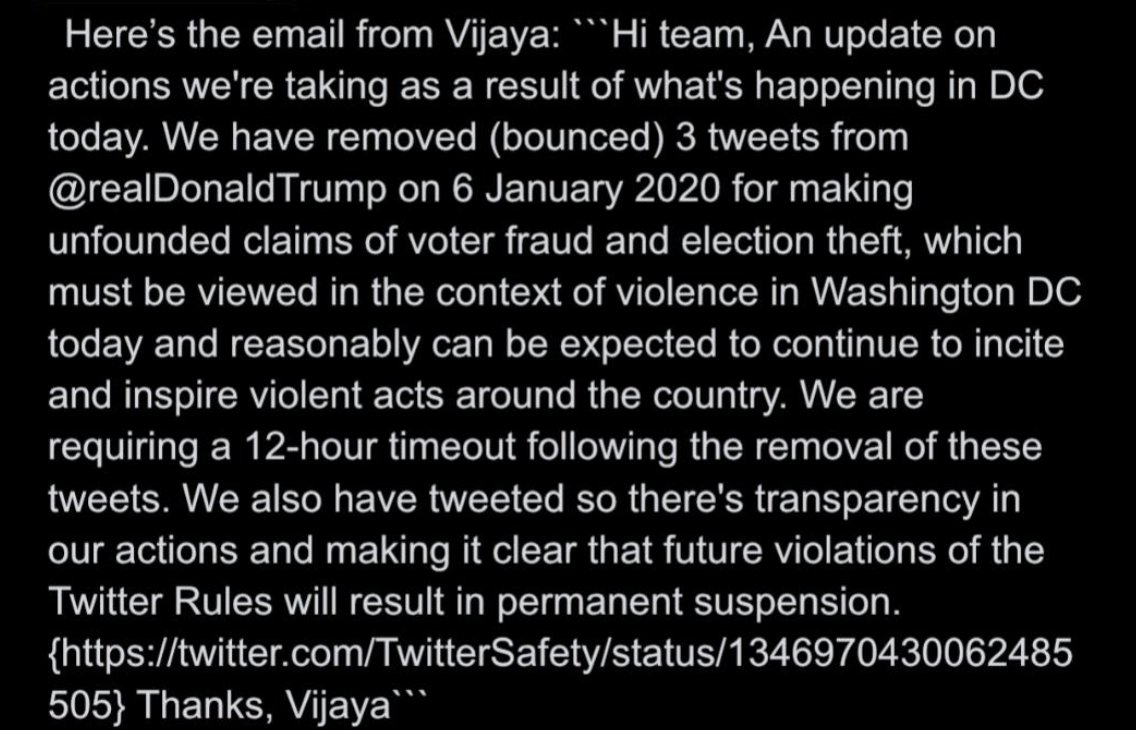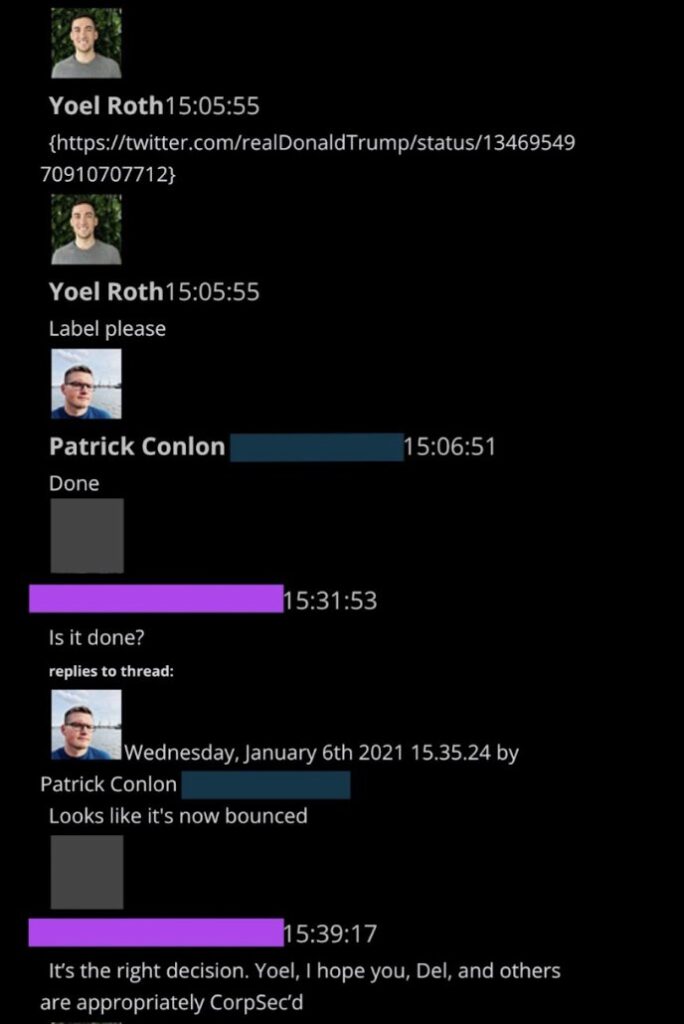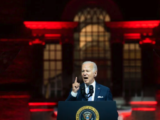The Big Picture –
By Glynn Wilson –
WASHINGTON, D.C. — Let’s face it, there are times in this crazy world and this funny business when the only recourse in the face of imminent disaster is to call up the ghost of Hunter S. Thompson, the doctor of Gonzo Journalism.
Now is such a time, since I’m about to reveal more about the dreaded “Twitter Files.”
If you follow social media news, you will recall what happened in the run up to Christmas in 2022, after Elon Musk took over Twitter.
Matt Taibbi, the formerly promising heir to the Hunter Thompson Gonzo Journalism throne, was summoned to San Francisco by Musk as one of the chosen journalists to gain access to the internal files of Twitter, now known as X.
If you missed it or need a refresher course, you can see what I wrote at the time here.
The Twitter Files: The Removal of Donald Trump
It’s not quite time to think about Christmas 2023. It’s almost time for Halloween instead. I know this because they started rolling out the Reese’s Pumpkins and Bats in the stores this week. It’s the official beginning of the season to fatten up on chocolate for the winter.
There’s also some scary news to report, news that is a harbinger of trouble to come in the media and on social media in the 2024 election cycle.
Remember the disastrous town hall meeting with Trump back in May that resulted in a precipitous drop in ratings for CNN and ultimately the firing of its president?
CNN leadership under fire after ‘disastrous’ Trump town hall
MSNBC was the beneficiary of that ratings bump.
But now NBC is under fire, and CNN gets to take the first shot.
“The Kristen Welker era of ‘Meet the Press’ is off to a bleak start,” CNN reported. “The high-stakes sit down with disgraced former president Donald Trump was all risk and little reward for Welker as she assumed the esteemed moderator chair of ‘Meet the Press’ for the first time Sunday. Television executives I surveyed before and after the interview were baffled that NBC News and Welker willfully chose to take on such a fraught assignment, given Trump’s notorious propensity to lie. As one television executive put it to me, “It was a crazy way to set the tone of what ‘Meet the Press’ would be under her.â€
“Welker allowed Trump to make a number of statements wholly untethered to reality on a range of critical issues without tenacious, resolute, or meaningful pushback. Trump, a rapid-fire lie machine, did his usual song and dance. He lied about the election. He lied about the insurrection that his lies had spawned. And he lied about pretty much every topic that Welker broached.
“Throughout it all, Welker seemed ill-equipped to handle Trump’s trademark bravado. Lacking any noticeable fire in her belly, she at times timidly tried to set the facts straight. But Welker lacked the necessary fervor and apparent grasp of the subject material the massive platform requires to effectively counter Trump, who as The New York Times chief White House correspondent Peter Baker later told her, is like a “bulldozer shoveling falsehoods.†Trump clearly smelled weakness in the air, taking control of the interview as he ignored Welker’s hopeless — yet constant — pleas to “stay on track†and continued flooding the zone with outrageous lies.
“Mr. President, let me just ask this question, please—,†she pleaded at one point.
So sit back and watch the blowback as another television network is attacked for not being able to handle dealing with Trump. How will it impact the ratings?
More importantly, how many lessons will it take to convince the press and media in America that you can’t let the Trump genie out of the bottle? He will scream and stomp and lie and cheat and try not to let you — “the enemy of (his white nationalist) people” — get a word in edgewise.
DO NOT let him on television. The only way to contain him is to force him to use his own Truth Social platform and Fox News to get his message out. STOP covering his lies as if this was normal politics! It’s not.
STOP thinking you can control him. You cannot.
Now for the lesson going forward for social media.
You may or may not recall the name of Dr. Yoel Roth, who just happens to be one of my heroes. He was the former head of trust and safety at Twitter who first suspended a head of state from posting on the platform, and ultimately issued a permanent suspension of Trump from further tweeting for “unfounded claims of voter fraud and election theft” during the violence in Washington, D.C. on Jan. 6, 2021.
After that, his entire life was upended, especially after Musk took over. His life was threatened for real. He had to move and hide.
This week, he finally got around to telling part of his story in the New York Times. And he has a warning for us all about what is likely to happen going forward in the 2024 election cycle. Everyone should read this and reread it.
Trump Attacked Me. Then Musk Did. It Wasn’t an Accident.
Key Excerpts
Since most people will not pay for the paywall to read it, here are the key excerpts.
When I worked at Twitter, I led the team that placed a fact-checking label on one of Donald Trump’s tweets for the first time. Following the violence of Jan. 6, I helped make the call to ban his account from Twitter altogether. Nothing prepared me for what would happen next.
Backed by fans on social media, Mr. Trump publicly attacked me. Two years later, following his acquisition of Twitter and after I resigned my role as the company’s head of trust and safety, Elon Musk added fuel to the fire. I’ve lived with armed guards outside my home and have had to upend my family, go into hiding for months and repeatedly move.
This isn’t a story I relish revisiting.
But I’ve learned that what happened to me wasn’t an accident. It wasn’t just personal vindictiveness or “cancel culture.†It was a strategy — one that affects not just targeted individuals like me, but all of us, as it is rapidly changing what we see online.
Private individuals — from academic researchers to employees of tech companies — are increasingly the targets of lawsuits, congressional hearings and vicious online attacks. These efforts, staged largely by the right, are having their desired effect: Universities are cutting back on efforts to quantify abusive and misleading information spreading online. Social media companies are shying away from making the kind of difficult decisions my team did when we intervened against Mr. Trump’s lies about the 2020 election.
Platforms had finally begun taking these risks seriously only after the 2016 election. Now, faced with the prospect of disproportionate attacks on their employees, companies seem increasingly reluctant to make controversial decisions, letting misinformation and abuse fester in order to avoid provoking public retaliation.
These attacks on internet safety and security come at a moment when the stakes for democracy could not be higher. More than 40 major elections are scheduled to take place in 2024, including in the United States, the European Union, India, Ghana and Mexico. These democracies will most likely face the same risks of government-backed disinformation campaigns and online incitement of violence that have plagued social media for years. We should be worried about what happens next.
My story starts with that fact check. In the spring of 2020, after years of internal debate, my team decided that Twitter should apply a label to a tweet of then-President Trump’s that asserted that voting by mail is fraud-prone, and that the coming election would be “rigged.â€
“Get the facts about mail-in ballots,†the label read.
On May 27, the morning after the label went up, the White House senior adviser Kellyanne Conway publicly identified me as the head of Twitter’s site integrity team. The next day, The New York Post put several of my tweets making fun of Mr. Trump and other Republicans on its cover. I had posted them years earlier, when I was a student and had a tiny social media following of mostly my friends and family. Now, they were front-page news. Later that day, Mr. Trump tweeted that I was a “hater.â€
Legions of Twitter users, most of whom days prior had no idea who I was or what my job entailed, began a campaign of online harassment that lasted months, calling for me to be fired, jailed or killed. The volume of Twitter notifications crashed my phone. Friends I hadn’t heard from in years expressed their concern. On Instagram, old vacation photos and pictures of my dog were flooded with threatening comments and insults. (A few commenters, wildly misreading the moment, used the opportunity to try to flirt with me.)
I was embarrassed and scared. Up to that moment, no one outside of a few fairly niche circles had any idea who I was. Academics studying social media call this “context collapseâ€: things we post on social media with one audience in mind might end up circulating to a very different audience, with unexpected and destructive results. In practice, it feels like your entire world has collapsed.
The timing of the campaign targeting me and my alleged bias suggested the attacks were part of a well-planned strategy. Academic studies have repeatedly pushed back on claims that Silicon Valley platforms are biased against conservatives. But the success of a strategy aimed at forcing social media companies to reconsider their choices may not require demonstrating actual wrongdoing. As the former Republican Party chair Rich Bond once described, maybe you just need to “work the refsâ€: repeatedly pressure companies into thinking twice before taking actions that could provoke a negative reaction. What happened to me was part of a calculated effort to make Twitter reluctant to moderate Mr. Trump in the future and to dissuade other companies from taking similar steps.
It worked.
As violence unfolded at the Capitol on Jan. 6, Jack Dorsey, then the C.E.O. of Twitter, overruled Trust and Safety’s recommendation that Mr. Trump’s account should be banned because of several tweets, including one that attacked Vice President Mike Pence. He was given a 12-hour timeout instead (before being banned on Jan. 8). Within the boundaries of the rules, staff members were encouraged to find solutions to help the company avoid the type of blowback that results in angry press cycles, hearings and employee harassment. The practical result was that Twitter gave offenders greater latitude: Representative Marjorie Taylor Greene was permitted to violate Twitter’s rules at least five times before one of her accounts was banned in 2022. Other prominent right-leaning figures, such as the culture war account Libs of TikTok, enjoyed similar deference.
Similar tactics are being deployed around the world to influence platforms’ trust and safety efforts.
***
Dorsey has now started his own new social media platform called Bluesky. Why should we trust the same hacker/programmer who created Twitter to know how to moderate a new platform? We need a new platform managed by a communications and journalism expert. Not another hacker/programmer.
But back to Roth’s story.
In each of these cases, the targeted staffers lacked the ability to do what was being asked of them by the government officials in charge, as the underlying decisions were made thousands of miles away in California. But because local employees had the misfortune of residing within the jurisdiction of the authorities, they were nevertheless the targets of coercive campaigns, pitting companies’ sense of duty to their employees against whatever values, principles or policies might cause them to resist local demands. Inspired, India and a number of other countries started passing “hostage-taking†laws to ensure social-media companies employ locally based staff.
In the United States, we’ve seen these forms of coercion carried out not by judges and police officers, but by grass-roots organizations, mobs on social media, cable news talking heads and — in Twitter’s case — by the company’s new owner.
One of the most recent forces in this campaign is the “Twitter Files,†a large assortment of company documents — many of them sent or received by me during my nearly eight years at Twitter — turned over at Mr. Musk’s direction to a handful of selected writers. The files were hyped by Mr. Musk as a groundbreaking form of transparency, purportedly exposing for the first time the way Twitter’s coastal liberal bias stifles conservative content.
What they delivered was something else entirely. As tech journalist Mike Masnick put it, after all the fanfare surrounding the initial release of the Twitter Files, in the end “there was absolutely nothing of interest†in the documents, and what little there was had significant factual errors. Even Mr. Musk eventually lost patience with the effort. But, in the process, the effort marked a disturbing new escalation in the harassment of employees of tech firms.
Unlike the documents that would normally emanate from large companies, the earliest releases of the Twitter Files failed to redact the names of even rank-and-file employees. One Twitter employee based in the Philippines was doxxed and severely harassed. Others have become the subjects of conspiracies. Decisions made by teams of dozens in accordance with Twitter’s written policies were presented as having been made by the capricious whims of individuals, each pictured and called out by name. I was, by far, the most frequent target.
The first installment of the Twitter Files came a month after I left the company, and just days after I published a guest essay in The Times and spoke about my experience working for Mr. Musk. I couldn’t help but feel that the company’s actions were, on some level, retaliatory. The next week, Mr. Musk went further by taking a paragraph of my Ph.D. dissertation out of context to baselessly claim that I condoned pedophilia — a conspiracy trope commonly used by far-right extremists and QAnon adherents to smear L.G.B.T.Q. people.
The response was even more extreme than I experienced after Mr. Trump’s tweet about me. “You need to swing from an old oak tree for the treason you have committed. Live in fear every day,†said one of thousands of threatening tweets and emails. That post, and hundreds of others like it, were violations of the very policies I’d worked to develop and enforce. Under new management, Twitter turned a blind eye, and the posts remain on the site today.
On Dec. 6, four days after the first Twitter Files release, I was asked to appear at a congressional hearing focused on the files and Twitter’s alleged censorship. In that hearing, members of Congress held up oversize posters of my years-old tweets and asked me under oath whether I still held those opinions. (To the extent the carelessly tweeted jokes could be taken as my actual opinions, I don’t.) Ms. Greene said on Fox News that I had “some very disturbing views about minors and child porn†and that I “allowed child porn to proliferate on Twitter,†warping Mr. Musk’s lies even further (and also extending their reach). Inundated with threats, and with no real options to push back or protect ourselves, my husband and I had to sell our home and move.
Academia has become the latest target of these campaigns to undermine online safety efforts. Researchers working to understand and address the spread of online misinformation have increasingly become subjects of partisan attacks; the universities they’re affiliated with have become embroiled in lawsuits, burdensome public record requests and congressional proceedings. Facing seven-figure legal bills, even some of the largest and best-funded university labs have said they may have to abandon ship. Others targeted have elected to change their research focus based on the volume of harassment.
Bit by bit, hearing by hearing, these campaigns are systematically eroding hard-won improvements in the safety and integrity of online platforms — with the individuals doing this work bearing the most direct costs.
Tech platforms are retreating from their efforts to protect election security and slow the spread of online disinformation. Amid a broader climate of belt-tightening, companies have pulled back especially hard on their trust and safety efforts. As they face mounting pressure from a hostile Congress, these choices are as rational as they are dangerous.
We can look abroad to see how this story might end. Where once companies would at least make an effort to resist outside pressure, they now largely capitulate by default. In early 2023, the Indian government asked Twitter to restrict posts critical of Prime Minister Narendra Modi. In years past, the company had pushed back on such requests; this time, Twitter acquiesced. When a journalist noted that such cooperation only incentivizes further proliferation of draconian measures, Mr. Musk shrugged: “If we have a choice of either our people go to prison or we comply with the laws, we will comply with the laws.â€
***
What can be done to turn back this tide?
Making the coercive influences on platform decision making clearer is a critical first step. And regulation that requires companies to be transparent about the choices they make in these cases, and why they make them, could help.
In its absence, companies must push back against attempts to control their work. Some of these decisions are fundamental matters of long-term business strategy, like where to open (or not open) corporate offices. But companies have a duty to their staff, too: Employees shouldn’t be left to figure out how to protect themselves after their lives have already been upended by these campaigns. Offering access to privacy-promoting services can help. Many institutions would do well to learn the lesson that few spheres of public life are immune to influence through intimidation.
If social media companies cannot safely operate in a country without exposing their staff to personal risk and company decisions to undue influence, perhaps they should not operate there at all. Like others, I worry that such pullouts would worsen the options left to people who have the greatest need for free and open online expression. But remaining in a compromised way could forestall necessary reckoning with censorial government policies. Refusing to comply with morally unjustifiable demands, and facing blockages as a result, may in the long run provoke the necessary public outrage that can help drive reform.
The broader challenge here — and perhaps, the inescapable one — is the essential humanness of online trust and safety efforts. It isn’t machine learning models and faceless algorithms behind key content moderation decisions: it’s people. And people can be pressured, intimidated, threatened and extorted. Standing up to injustice, authoritarianism and online harms requires employees who are willing to do that work.
Few people could be expected to take a job doing so if the cost is their life or liberty. We all need to recognize this new reality, and to plan accordingly.
I’m sorry, Dr. Roth, but that’s not good enough.
Recommendations
Twitter: Many Democrats have already left the X platform. Many advertisers have also left. But members of the press and media are still there, using it as their chosen platform to augment and promote coverage.
Elon Musk has proven that he is no better than Fox News. Do you watch Fox News? No. So stop using Twitter.
What do news organizations need a social media platform for anyway? Most have their own applications or apps. Everyone has email lists to notify readers, listeners and viewers when a new story comes out. You can still use Facebook for the comments. You don’t need X, so X out of X!
If the management at the New York Times was so smart, they would hire me to help them build a new app for news and honest activism. The management of the big newspapers are to blame for many of these problems we are having today. Why did they let Google get away with only paying a penny a click on online ads, for example?
If Bork’s Thinking is Behind Google Strategy, Let’s All Boycott Google
Trump: DO NOT put Trump on mainstream, prime time television, except to show him on trial for all his crimes. He should be locked up and banned from media. Not promoted as the Republican front runner. If the Republican Party actually nominates him next August — I don’t think they will since he will most likely be a convicted felon by then — ban the Republican Party from the airwaves.
The United States of America is a democracy.
Authoritarian dictatorship is the opposite of a democracy. Every media outlet should make this crystal clear to readers, listeners and viewers, and this is especially true of the Public Broadcasting System (PBS) and National Public Radio (NPR) which hold their public airwaves licenses because they pledged to be “educational” channels. Behaving like commercial networks is NOT their mission. They should STOP acting like commercial networks. They should not be in the business for the money anyway.
The First Amendment to the United States Constitution was written and passed to protect privately owned newspapers from government censorship.
“Congress shall make no law … abridging the freedom of speech, or of the press.”
It says nothing about private companies moderating their own content. Newspapers routinely chose what letters to the editor to publish or not publish, and they were often edited before publication.
All media news sites and social media platforms should therefore be moderated forums, not wide open platforms for hate speech and blatantly false misinformation, disinformation and propaganda.
People are entitled to their opinions, but not their own facts.
If we can’t get this right, right now, in this moment, the future of democracy is doomed. We might as well roll up the red carpet and bow down to the blonde, orange mob boss dictator wannabe and let the uneducated rednecks take over and call this an idiocracy.
I am not willing to do that. Are you?
___
If you support truth in reporting with no paywall, and fearless writing with no popup ads or sponsored content, consider making a contribution today with GoFundMe or Patreon or PayPal. We just tell it like it is, no sensational clickbait or pretentious BS.

















Excellent work my friend